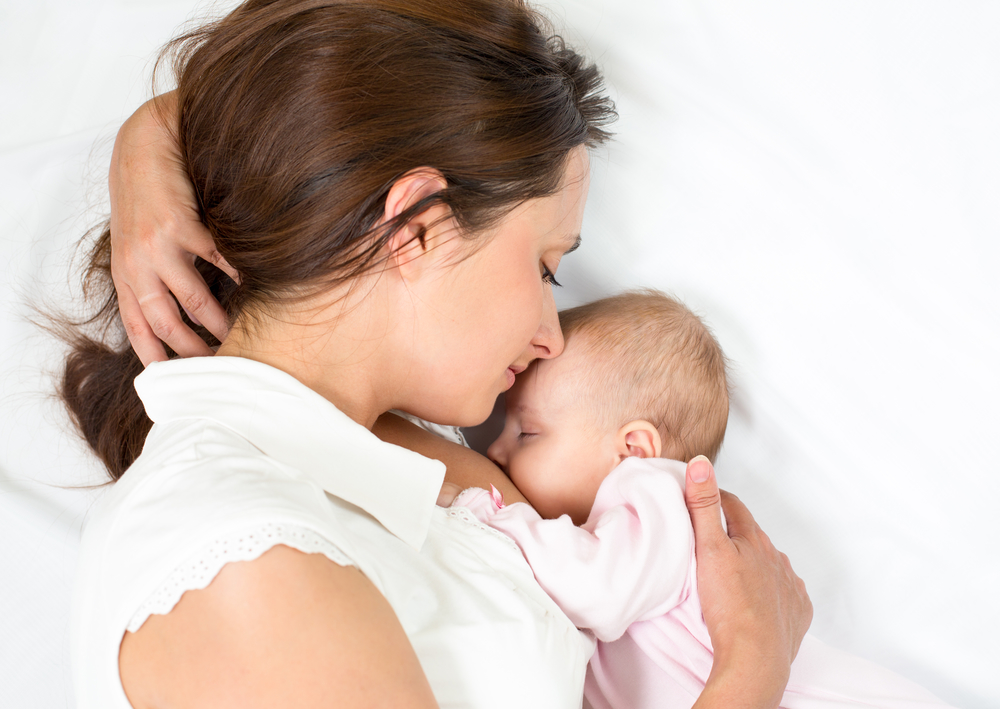By Associate Professor Dr Sandy Hopper
You devoured all the pregnancy books, worked out a birth plan, installed a baby capsule in the car and finally got the nursery set up – you are ready for your firstborn! But after all the excitement (who can ever forget that rush of love you felt when you first saw your baby?) taking your newborn home can be a little daunting. Here are 20 things to help you survive your exciting journey. And always remember – you cannot spoil a newborn!
- Babies only breathe through their nose. When they have a blocked or snotty nose, they can struggle to breathe. Saltwater drops or a saline spray can help this.
- They make all sorts of snuffly, grunting noises all the time.
- Babies breathe a lot faster than adults – 40-60 breathes per minute. Short pauses in breathing (5-10 seconds – which feels like a lifetime!) are common.
- Their poo starts off as thick dark green and sticky and then changes to anything from light yellow to khaki green. Only black, red or white poo is abnormal.
- A breastfed baby can poo 10 times a day or once every 10 days, or anywhere in between. All are normal, as long as the bay is feeding and behaving normally.
- As babies have no bladder control, they pee frequently (especially when you remove the nappy!) They usually have a minimum of 4-5 good wet nappies a day, often more.
- Orange-red crystals (the colour of brick dust) in their nappies in the morning is normal. It is not blood.
- Babies don’t “sleep like a baby!”. Their sleep architecture is completely different to an adult. They drop straight into dream sleep, have 30-minute sleep cycles with frequent awakening.
- They jerk and wriggle a lot when sleeping. Whatever sleep rhythm you have together seems to change as soon as you get used to it.
- The eye colour they are born with might not be their final colour – you will discover their lifetime colour at around six months of age.
- Babies are born short-sighted – they can appreciate faces at around 30 cm distance (ie the distance from your face to your chest)
- A wandering eye or periodic cross-eyes are normal at a young age.
- Boy do newborns cry! But they don’t make actual tears until they are three weeks of age.
- Mucky eye is common – if the eyeball isn’t red just clean the muck away with cooled, boiled water or breast milk.
- It’s normal for their umbilical cord stump to get a bit smelly before it drops off, especially in summer. It’s also normal for a few stains or smears on a singlet from the cord.
- Babies can have dry skin – plain moisturiser should be used. They don’t need to be washed that often, once or twice a week is fine, although they do like a bath, and if you want to do this daily, that’s also fine. They can have acne or angry looking rashes due to maternal hormones.
- Babies don’t have a six-pack, so their belly is huge and floppy and may look “abnormal in shape”/ big, especially after a feed.
- All babies have a degree of regurgitation/reflux/posseting, It doesn’t need treatment unless they have heartburn or lose too much feed.
- It’s normal for babies’ weight to change. They’re born waterlogged and can lose up to 10% of their body weight in the first week or two. After that they double their weight in the first 4-6 months and triple it by around a year!
- Babies are born with maternal hormones which drop off fairly quickly. Both boys and girls are born with small breasts and sometimes lactate! Baby girls can also have a mini-period. A boy’s foreskin is stuck down – don’t try to retract it. He’ll discover how to do this later!
Associate Professor Sandy Hopper, a Paediatric Emergency Medicine Physician, is the Chief Medical Officer and co-founder of KidsDocOnCall, a 24/7 national children’s medical telehealth service. He is also an Associate Professor of Paediatrics at the University of Melbourne. The dad of two teenage boys understands the stresses of parenthood and is driven to help Australian children lead their happiest and healthiest lives. Find out more at kidsdoconcall.com.au or download the app.







